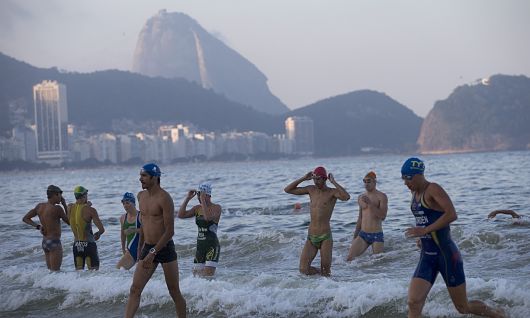Water in Rio May Pose Health Threat to Athletes
 The World Health Organization (WHO) is asking the International Olympic Committee to run new tests on the water in Rio de Janeiro. The request comes after an investigation by the Associated Press (AP), which determined the waterways still pose a health threat to athletes.
The World Health Organization (WHO) is asking the International Olympic Committee to run new tests on the water in Rio de Janeiro. The request comes after an investigation by the Associated Press (AP), which determined the waterways still pose a health threat to athletes.
Previous evaluations of the water only checked for bacteria, not viruses, which is what WHO wants to change.
An AP investigation into Rio’s waterways found that pollution levels are still high in places where canoeists, sailors, swimmers and triathletes will compete in the 2016 Summer Olympics.
The AP reported that some athletes training in Rio have fallen ill with symptoms including fever, vomiting and diarrhea because of dangerous levels of viruses and bacteria in the waterways.
The results of the investigation are disappointing for Rio, as being chosen to host the Olympics was supposed to motivate the city to clean its waterways. A newly installed sewage system was thought to be able to handle 80 percent of raw sewage, but as of March, the treatment rate was only 49 percent.
Still, the results aren’t necessarily a surprise, as Rio mayor Eduardo Paes confirmed to Brazil’s SporTV in March that Guanabara Bay, the waterway that is supposed to host the sailing events, would not be clean by the time the games start.
The waterway has become a place where some of the untreated sewage from the city’s 12 million residents ends up.
Rodrigo de Freitas Lake in Central Rio, a second venue for rowing, canoeing, triathlon and open-water events, also poses a health threat to athletes, with tests showing high levels of viruses in the water.
In response to the results of the investigation, the world sailing governing body said it would conduct its own independent testing of Rio’s waterways.
– Matt Wotus
Sources: The Washington Post 1, The Washington Post 2, The Washington Post 3
Photo: The Guardian
